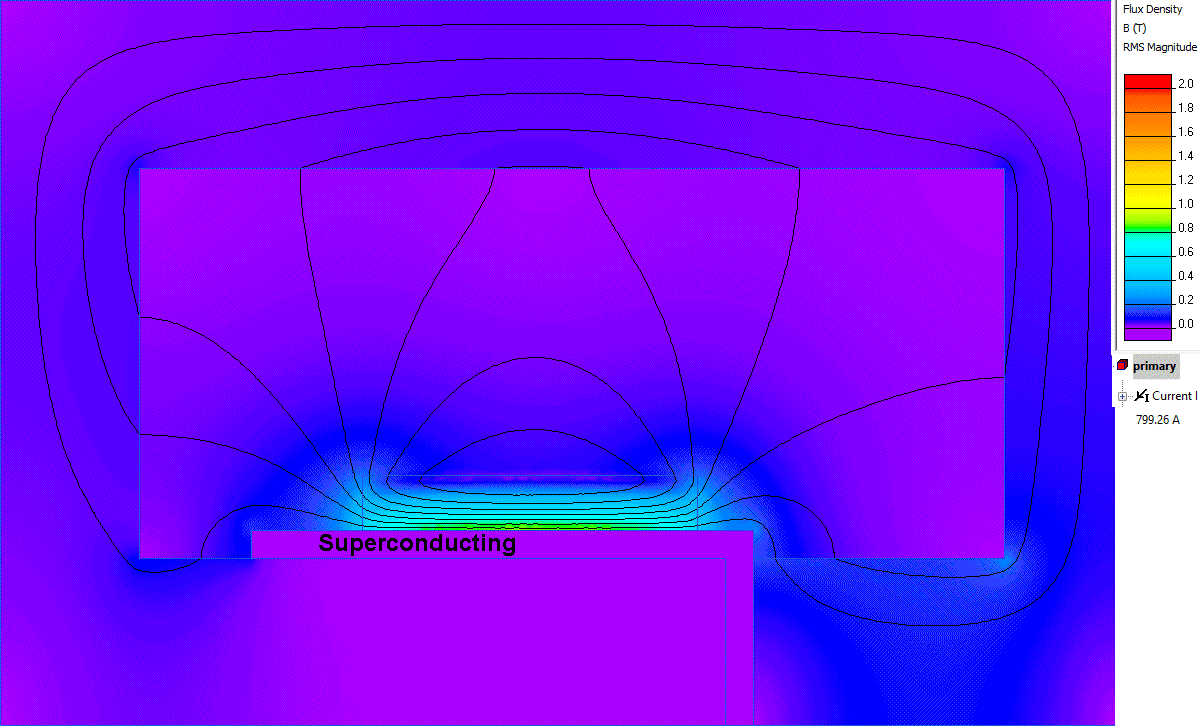Superconducting fault current limiter. Single coil with ferrite core
QuickField simulation example
This simulation example is prepared by Professor James R. Claycomb as a part of the webinar Fault Current Limiter Simulations using QuickField.
An inductive superconducting current limiter utilizes the fact that a superconductor becomes a normal conductor at some critical value of magnetic flux density. Below the critical value the superconductor effectively screens the core thus reduces the winding inductance. When the fault occurs, the current increases many times, and its magnetic field causes the superconductor to come to a normal state.
Problem Type
Axisymmetric problem of AC magnetics.
Geometry
Given
Iron core permeability is 500.
Winding number of turns is 24, conductor cross-section area is 4 mm², copper conductivity is 57 MS/m.
Voltage source is 12 V, frequency 50 Hz.
Superconductor permeability is a non-linear function of magnetic field strength:
Task
Calculate the fault current.
Solution
Three problems are simulated:
- superconductor in a superconducting state (μ=10-6);
- superconductor in an intermediate state (BH-curve is specified);
- superconductor in a normal state (μ=1).
Results
The picture shows how the state of the superconductor changes from superconducting to intermediate to normal. The fault current value changes from 799A to 557A to 118A respectively.

- Video: Superconducting fault current limiter. Single coil with ferrite core. Watch on Youtube
- Download simulation files (files may be viewed using any QuickField Edition).